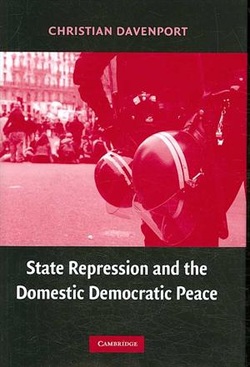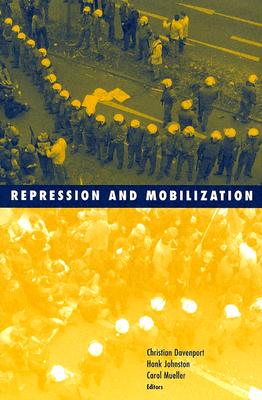Macro-Foundational Research
The Costs of Contention
The Costs of Contention project seeks to understand how diverse forms of political conflict and violence (e.g. genocide, civil war, human rights violations) influence diverse political and economic outcomes (e.g., the type of political system, mass participation, economic development, happiness and foreign direct investment).
Previous research relevant to this topic has been limited to studying only specific forms of conflict and violence as well as specific outcomes. The current project therefore opens up these categories to achieve a comprehensive analysis of the real costs of contention. Additionally, the project seeks to explore not only global patterns but also sub-national and individual level patterns. The research effort is complex in that it involves using pre-existing data in new ways, as well as collecting and analyzing new data across time and at multiple levels of analysis (i.e., the globe, specific country cases, and individual level data from specifically-targeted matched locations within the cases). The project will be attentive to numerous potential biases: e.g., gender differences in costs of contention, and the existence of missing data. The information emerging from this research will have significant potential use. Most importantly, project outputs will provide evidence-based early warning of likely challenges for recovery and development efforts in the post-conflict period, for policy-makers, practitioners, and other stakeholders engaged in recovery efforts. This can significantly improve the lives of those who would otherwise suffer without informed policy options.
Previous research relevant to this topic has been limited to studying only specific forms of conflict and violence as well as specific outcomes. The current project therefore opens up these categories to achieve a comprehensive analysis of the real costs of contention. Additionally, the project seeks to explore not only global patterns but also sub-national and individual level patterns. The research effort is complex in that it involves using pre-existing data in new ways, as well as collecting and analyzing new data across time and at multiple levels of analysis (i.e., the globe, specific country cases, and individual level data from specifically-targeted matched locations within the cases). The project will be attentive to numerous potential biases: e.g., gender differences in costs of contention, and the existence of missing data. The information emerging from this research will have significant potential use. Most importantly, project outputs will provide evidence-based early warning of likely challenges for recovery and development efforts in the post-conflict period, for policy-makers, practitioners, and other stakeholders engaged in recovery efforts. This can significantly improve the lives of those who would otherwise suffer without informed policy options.
The Pacifying Influence of Political Democracy
Although terrorism and civil war receive the most attention nowadays, the largest threat to human life still emerges from governments. Mass killing, execution, torture, disappearances, beatings, harassment, imprisonment and domestic spying undertaken by political authorities still impact more individuals than anything done by other socio-political actors - taking lives as well as political freedom.
For approximately 16 years, I have been trying to understand what influences state repression/human rights violation as well as (more recently) what can be done to reduce its occurrence and severity. The work on this webpage explores different resolutions to the problem that are essentially “macro” in nature (i.e., those that highlight factors at the national level, emphasizing large-scale, generally institutional characteristics of nation-states).
To date, most of my research considers the pacifying influence of democracy/democratization. Newer work considers the influence of other factors such as military intervention, economic sanctions, “naming and shaming” and other political-economic policies.
For approximately 16 years, I have been trying to understand what influences state repression/human rights violation as well as (more recently) what can be done to reduce its occurrence and severity. The work on this webpage explores different resolutions to the problem that are essentially “macro” in nature (i.e., those that highlight factors at the national level, emphasizing large-scale, generally institutional characteristics of nation-states).
To date, most of my research considers the pacifying influence of democracy/democratization. Newer work considers the influence of other factors such as military intervention, economic sanctions, “naming and shaming” and other political-economic policies.
State Repression & Domestic Democratic Peace

Most individuals believe that democracy (i.e., institutional configurations which constrain political elites and facilitate direct participation in the political process) decreases the use of coercion by governments - what is referred to as “the domestic democratic peace.”
Is this true? Are all aspects of democracy equally capable of decreasing repression? Are all forms of repression equally likely to be influenced? The research below explores these issues.
Books Relevant to Democratic Peace
State Repression and the Domestic Democratic Peace. Cambridge University Press - Cambridge Studies in Comparative Politics. 2007
Click link for description, excerpt, index, purchasing and more!
Praise for State Repression and the Domestic Democratic Peace
"State Repression and the Democratic Peace is that rare book that compels the reader to adopt a significantly transformed way to think about democracy's warts as well as its many virtues. Christian Davenport has done a masterful job of exploring and explaining the conditions under which democratic governments resort to repressive and coercive policies. (The) book is a tour de force, a must-read for anyone who wants to understand the underside of democracy" — Bruce Bueno de Mesquita, New York University
"This is a carefully nuanced comparative examination of how democratic institutions do and don't effectively constrain state repression under conditions of domestic and international threat. It is relevant to both new and long-established democracies" — Bruce Russett, Yale University
"Drawing on, synthesizing and extending insights from comparative politics and international relations, political institutions, and conflict studies, Davenport provides one of the most important studies of state repression yet written. A must-read for those interested in political repression, state-sponsored violence, and the future of liberalism" — Allan Stam, University of Michigan
"Davenport's State Repression and the Domestic Democratic Peace is a masterful, systematic, and sobering analysis of how contemporary states - often unsuccessfully - must tread a thin line between protecting and repressing political freedoms" — Michael Ward, University of Washington
Articles Relevant to Democratic Peace
“Political Democracy and State Repression.” In Human Rights: Politics and Practice, Michael Goodhart, ed. New York: Oxford University Press. 2009.
Democracy and the Violation of Human Rights - American Journal of Political Science 2004 (with David Armstrong)
Human Rights and the Promise of Democratic Pacification - International Studies Quarterly 2004
Liberalizing Event or Lethal Episode: Elections and State Repression - Social Science Quarterly 1998
From Ballots to Bullets: An Empirical Assessment of How National Elections Influence State Uses of Political Repression - Electoral Studies 1997
Constitutional Promises and Repressive Reality: A Cross-National Time Series Investigation of Why Political and Civil Liberties are Suppressed - Journal of Politics 1996
Is this true? Are all aspects of democracy equally capable of decreasing repression? Are all forms of repression equally likely to be influenced? The research below explores these issues.
Books Relevant to Democratic Peace
State Repression and the Domestic Democratic Peace. Cambridge University Press - Cambridge Studies in Comparative Politics. 2007
Click link for description, excerpt, index, purchasing and more!
Praise for State Repression and the Domestic Democratic Peace
"State Repression and the Democratic Peace is that rare book that compels the reader to adopt a significantly transformed way to think about democracy's warts as well as its many virtues. Christian Davenport has done a masterful job of exploring and explaining the conditions under which democratic governments resort to repressive and coercive policies. (The) book is a tour de force, a must-read for anyone who wants to understand the underside of democracy" — Bruce Bueno de Mesquita, New York University
"This is a carefully nuanced comparative examination of how democratic institutions do and don't effectively constrain state repression under conditions of domestic and international threat. It is relevant to both new and long-established democracies" — Bruce Russett, Yale University
"Drawing on, synthesizing and extending insights from comparative politics and international relations, political institutions, and conflict studies, Davenport provides one of the most important studies of state repression yet written. A must-read for those interested in political repression, state-sponsored violence, and the future of liberalism" — Allan Stam, University of Michigan
"Davenport's State Repression and the Domestic Democratic Peace is a masterful, systematic, and sobering analysis of how contemporary states - often unsuccessfully - must tread a thin line between protecting and repressing political freedoms" — Michael Ward, University of Washington
Articles Relevant to Democratic Peace
“Political Democracy and State Repression.” In Human Rights: Politics and Practice, Michael Goodhart, ed. New York: Oxford University Press. 2009.
Democracy and the Violation of Human Rights - American Journal of Political Science 2004 (with David Armstrong)
Human Rights and the Promise of Democratic Pacification - International Studies Quarterly 2004
Liberalizing Event or Lethal Episode: Elections and State Repression - Social Science Quarterly 1998
From Ballots to Bullets: An Empirical Assessment of How National Elections Influence State Uses of Political Repression - Electoral Studies 1997
Constitutional Promises and Repressive Reality: A Cross-National Time Series Investigation of Why Political and Civil Liberties are Suppressed - Journal of Politics 1996
Repression and Mobilization

